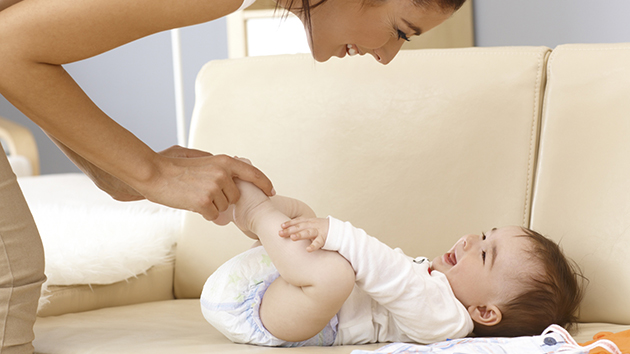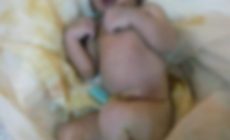Study reveals: Sleeping on sofa can be deadly for babies
- Posted on
- Comment
 ONE of the most dangerous places for a sleeping baby is a sofa, according to a new study.
ONE of the most dangerous places for a sleeping baby is a sofa, according to a new study.
Of nearly 8,000 infant sleeping deaths in the United States, researchers found that about 12 per cent were sofa-related. And nearly three-quarters of those infants were newborns.
“It was shocking that one in eight SIDS and infant sleep-related deaths occurs on a sofa,” said study co-author Dr. Jeffrey Colvin, a pediatrician at Children’s Mercy Hospital in Kansas City. “Sofas don’t even come to mind when people think of places where infants sleep. The proportion was much, much higher than I ever could have guessed.”
SIDS refers to sudden infant death syndrome — an apparently healthy baby’s unexplained death that usually occurs during sleep. Approximately 4,000 babies die of SIDS each year in the United States, though the rate halved in the early 1990s after pediatricians began encouraging parents to place babies to sleep on their backs.
The new study found that infants who died sleeping on a sofa were nearly twice as likely to die from suffocation or strangulation as babies who died sleeping elsewhere. Among those infants, 40 percent died due to suffocation or strangulation, 36 percent had an undetermined cause of death and 24 percent died from SIDS.
Colvin and his colleagues looked at more than 7,900 infant sleeping deaths reported over an eight-year period in 24 states. About half of these deaths occurred in an adult bed, and one in five occurred in a crib. But the researchers focused on the approximately 1,000 sofa deaths.
The findings were published online Oct. 13 in the journal Pediatrics. The vast majority of the babies who died on sofas were 3 months old or younger. And several other characteristics distinguished these deaths from infant sleep deaths on other surfaces, according to the report.
Babies who died on a sofa were over six times more likely to be sleeping in a new place compared to babies who died on adult beds or in their cribs. This implies that falling asleep on a sofa may have been accidental, said Dr. Cigal Shaham, an attending physician at Cedars-Sinai Medical Center in Los Angeles.
“Infants often end up sleeping on the sofa because one parent is trying to feed the baby without disturbing the other parent, or they think they will watch TV or do something while they are up with the baby in the middle of the night, but then they unintentionally fall asleep out of exhaustion,” she said.
The study also found that babies who died while asleep on the sofa were about twice as likely to be sleeping with someone else compared to babies who died sleeping in other places.
“In nearly 90 percent of the sofa deaths, the infant was sharing the sofa with an adult,” Colvin said. “With such little room and the likelihood that the infant would have been placed between the adult and the back cushions, it is not hard to imagine that an infant could become accidentally suffocated by either the adult or the cushions,” he said.
In other situations, however, the parents or other caregiver may not have realized the sofa was an unsafe place for a baby as long as they were nearby.
“They may be trying to work or clean or cook, and they think they can keep an eye on the baby if the baby is on the sofa,” Shaham said. “But the sofa is so dangerous for infants because it is soft, which means the infant can suffocate more easily, and it often slopes so babies can roll onto their stomachs, roll between the couch and the back cushions or even roll off the sofa.”
Babies who died on the sofa were also more likely to have other risk factors for SIDS or other infant sleeping deaths than babies who died elsewhere, according to the study.
For example, the mothers of infants who died on sofas were about 40 percent more likely to have smoked during pregnancy than mothers of infants who died elsewhere.
Infants who died in their sleep on the sofa were more likely to be white and found on their side — another SIDS risk factor — compared to babies who died in other places.
“Parents should always remember that SIDS can occur anytime — during naps or overnight — and can occur in any location, whether it’s at home, in child care or at a babysitter’s or relative’s house,” Colvin said. “The ABC’s of safe sleep must always be followed: infants must always sleep Alone, on their Back, and in a Crib, and Alone means no other people and no pillows, quilts, or other soft objects.”
Shaham suggested that parents plan ahead and recognize their own limits to avoid accidentally falling asleep with their baby.
“Parents need to be aware of their own exhaustion,” she said.









 (Selorm) |
(Selorm) |  (Nana Kwesi)
(Nana Kwesi)